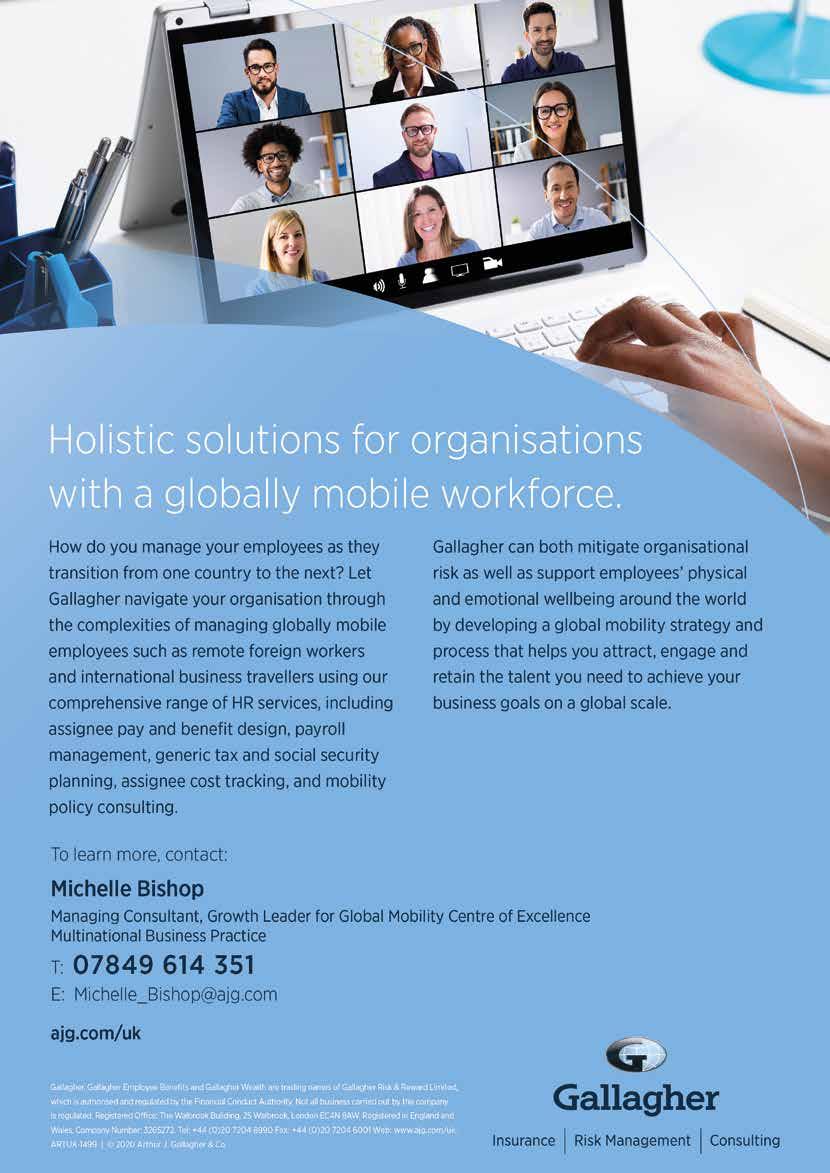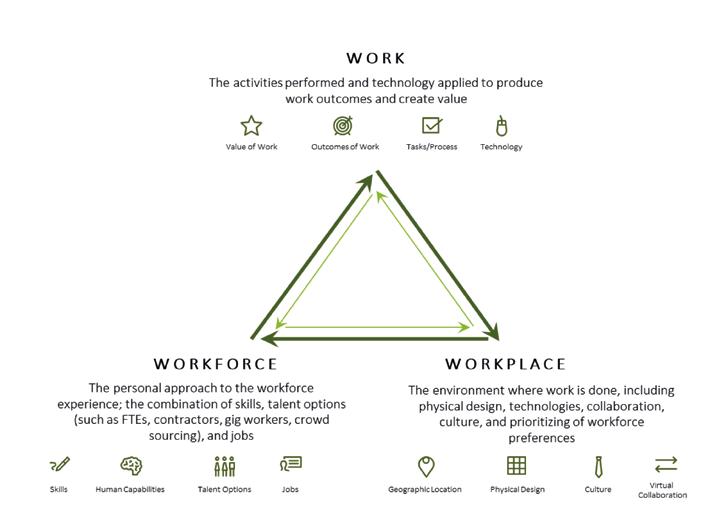INTERNATIONAL HR ADVISER AUTUMN
Global Tax Update COVID-19/CORONAVIRUS
At the time of writing this update in mid-September, the world of global mobility continues to see an unprecedented challenge as a result of Covid-19/ Coronavirus. Ever increasing globalisation is under pressure and business travel has largely ground to a halt. Indeed, access to some countries remains prohibited for nonnationals/citizens. The reaction from Governments and tax authorities around the world has been relatively swift, with a variety of special measures and relaxations introduced to help employers and employees navigate the immediate issues that arise with filing deadlines, payment of taxes and lack of mobility. Summarising the huge volume of measures undertaken so far remains a challenge, with rules and positions changing frequently. This article sets out some measures introduced in Belgium, Colombia, Hong Kong and the UK in order to provide a ‘flavour’.
BELGIUM
The impact of coronavirus on international employment Following the coronavirus outbreak many countries, including Belgium, have taken measures to stop the spread of the virus. As of 18 March, 2020, companies in Belgium, with the exception of those who provided essential services, were obliged to organise working from home for every position where this was possible, and international travel restrictions were introduced. In this respect, you may wonder whether the disrupted work pattern of your employees, who normally work internationally, could have an impact on the applicable social security regime and the taxation of their employment income. We summarised the possible consequences in a previous update. In this article, you will find further information regarding bilateral agreements and formalities. Principles Of The OECD Model Tax Convention On Employment Income In order to determine which country will be entitled to levy income tax on employment income, the tax treaty between the home country and the working country will apply. In principle, remuneration is taxed in the host country (and the home country if residence continues), unless certain conditions are met. The host country will generally exempt the income from the charge to tax if: • The employee does not spend more than 183 days during the calendar year or any 12-month period in the working country and
8
• The salary is not paid or borne by a formal or material employer in the working country and • The salary is not borne by a permanent establishment or fixed base of the employer in the working country.
Ever increasing globalisation is under pressure and business travel has largely ground to a halt. Indeed, access to some countries remains prohibited for non-nationals/ citizens Bilateral Agreements The OECD issued a number of specific recommendations concerning the questions that have arisen with respect to cross-border employment situations in the lockdown period. The OECD confirms that the normal tax treaty provisions will continue to apply, but it will consult with the various countries in its efforts to prevent the unforeseen consequences of the tax shift as much as possible, and to mitigate the administrative burden as well. Where the normal provisions of double tax treaties concluded by Belgium and other countries remain applicable, the increased physical presence in the home country due to quarantine and teleworking measures could lead to additional tax liabilities. The Belgian and foreign authorities of the Netherlands, Luxembourg, France and Germany have therefore concluded bilateral agreements on taxation under the double tax treaty following Covid-19.
Employees who work from home solely due to Covid-19 measures can remain taxable in the state where they previously worked prior to the outbreak of the pandemic. Do note that this only applies in relation to days worked at home due to Covid-19. The same rules apply to situations where the worker is temporarily unemployed and benefits from a continued payment of his/ her wages by the employer, or is entitled to temporary unemployment benefits (only for the agreement with the Netherlands). These agreements are applicable as of mid-March (i.e. 14 March for France, 11 March for the Netherlands, Luxembourg and Germany) until at least 30 June, 2020. We expect that further agreements will be concluded between the various member states of the European Union and possibly also with third countries. Special Tax Status A foreign executive who benefits from the Special Tax Status in Belgium is taxed on their worldwide professional income as well as on other Belgian source income. The most important advantages of the application of the Special Tax Status are: • The individual will be considered a Belgian non-resident for tax purposes • The individual will receive nontaxable allowances provided it can be demonstrated that the allowances are justified by actual costs incurred (i.e. taxfree allowances) • Income related to non-Belgian working days are excluded from the taxable basis (i.e. travel exclusion). Due to the pandemic, these expats have not been able to travel as much as they normally would. No specific tolerance has been introduced regarding these foreign executives. As a result, they will be not be able to exclude the teleworking days which they would have normally spent abroad and they will be taxed in Belgium on a higher tax basis. This has been explicitly mentioned in a FAQ issued mid-June. Logically, it would also mean that employees benefiting from the Special Tax Status who were forced to stay and work outside Belgium due to the restrictions, should be able to claim these days as foreign business days. The tax authorities however, have not taken any formal position in relation to this.
COLOMBIA
Tax burden on individuals/expatriates in Colombia impacted by coronavirus Due to current circumstances, taxpayers that were affected because of border closures in










